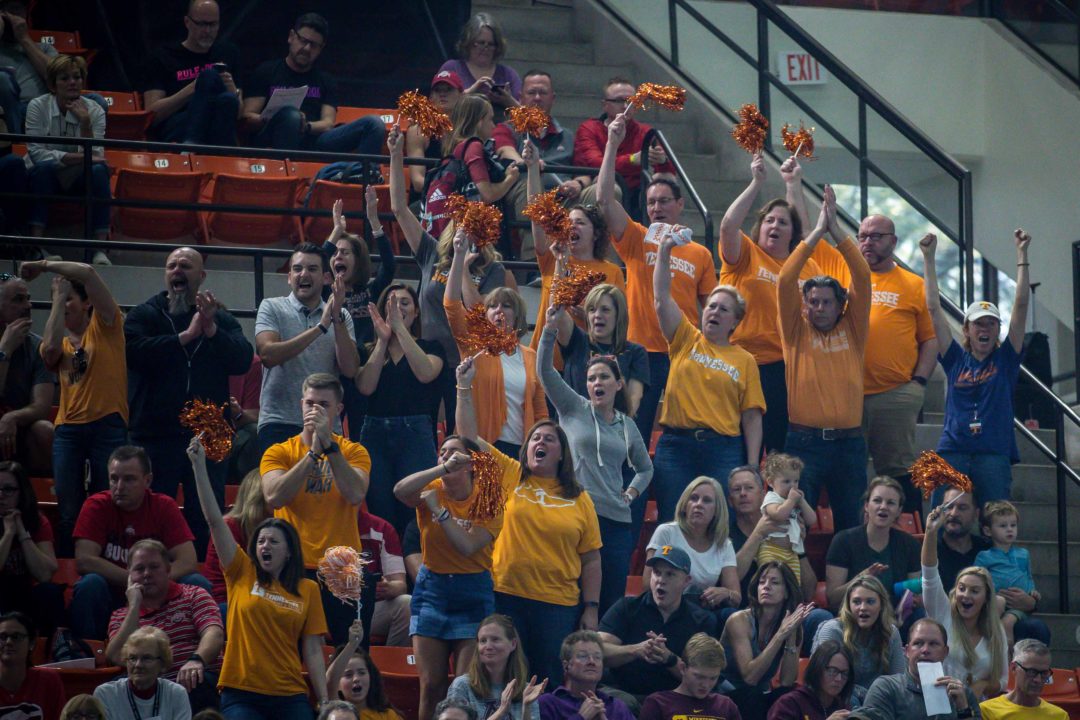Swimming is a beautiful and complex sport. All the rules, strokes, distances, tapers, and all the food involved can quickly become overwhelming for the newbie swim parent.
Beyond the car-pooling, the perpetual sogginess, and playing armchair psychologist and personal chef to a young athlete, there is navigating the sport itself.
What meets should I go to? What is a heat sheet? How is it possible that my child can eat a large salad bowl of pasta after practice and still be hungry?
This confusion, I would argue, is a cause for a lot of the conflict and miscommunication that happens later in the season between parents and coaches. When things are crystal-clear from the beginning, roles are established, and expectations clearly marked, everyone can focus on doing their best at their respective role, whether it’s coach, parent, or swimmer.
But where to start? For the new swim parent there is A TON of ground to cover in knowledge. With all the stuff that is online, it is easy to fall into the rabbit-hole of information overload.
Fortunately, one of the best resources for swim parents is already sitting up in those metal bleachers with you.
Recently I surveyed my newsletter subscribers, specifically the swim moms and dads, and asked them what advice they had for new swim parents, and the responses hit a lot of the same notes:
- Let the coaches coach, the parents parent, and the swimmers swim.
- Get involved in the sport in some manner, whether it is timing, becoming an official, or
- Expect clear and high standards from the team and the coaching staff.
- Be a positive and encouraging voice in the moments after a bad swim for your child.
And so on.
But there was one thing that really stood out.
Almost universally, the swim parents surveyed mentioned that the best resource they’d used when getting started with the sport was the experienced swim parents on the team.
Which makes a ton of sense, when you think about it.
Ultimately, each club is different in structure, governance, and standards. Each team goes to different meets, has varying standards for moving swimmers up a level, and different expectations for whether parents should attend practice to watch their swimmers.
For the new swim parent, what is expected of them isn’t always very clear.
Especially when you consider that there are teams that don’t do parent information sessions or have a team handbook outlining roles and responsibilities of all the parties involved.
This is why, as a new swim parent, your best resource is the experienced swim parents sitting in the stands with you.
The ones who have logged the years in the club, whose kids have laddered up groups, who have gone to the meets, know the coaches, and understand the dynamics and expectations of the club.
Don’t be shy about asking for clarification and help.
Experienced swim parents are ready to offer their knowledge and inside info, but don’t always think to share it themselves.
Don’t be afraid to ask. Your best resource for the path ahead is often sitting in the stands with you.
All clubs are different.
Even as an experienced swim family we sometimes got a little lost in the weeds when moving to a new team.
Experienced parents are key in helping navigate the unique things about a club, whether it’s the coach, the meet schedule, how busy the parking lot gets at home meets, how the board works, the secret to making the glitchy timing system function properly, and so on.
Seek out the supportive parents on the team.
You know who they are. They attend the meets, they show up to all the parent meetings, they are the first to volunteer. They’ve entrenched themselves into the club, are a big reason for why the club operates as well as it does, and as a result, have a lot to teach you.
These are the swim parents that you stand to learn the most from. With every swim team (and this is a broader societal issue, not remotely limited to swim teams or even sport), there are disruptive parents. The ones who gossip, undermine the coach/team, and who make the stands a toxic place.
Model your expectations off the swim parent who is showing up for their swimmer, who is supportive, and who has the best interest of the team and their child at heart.
Start a Swim Parent Mentor Program.
For the experienced swim parent who wants to be proactive in sharing knowledge, and for clubs and coaches who want to clear the lines of communication and expectations, consider starting a Swim Parent Mentor program.
Pair up new swim parents with the veteran swim parents.
I’ve always been a massive fan of peer mentoring with older and younger swimmers, and there is no reason this dynamic can’t also be helpful with educating new swim parents.
ABOUT OLIVIER POIRIER-LEROY
Olivier Poirier-Leroy is a former national level swimmer. He’s the publisher of YourSwimBook, a ten-month log book for competitive swimmers.
 He’s also the author of the recently published mental training workbook for competitive swimmers, Conquer the Pool: The Swimmer’s Ultimate Guide to a High Performance Mindset.
He’s also the author of the recently published mental training workbook for competitive swimmers, Conquer the Pool: The Swimmer’s Ultimate Guide to a High Performance Mindset.
It combines sport psychology research, worksheets, and anecdotes and examples of Olympians past and present to give swimmers everything they need to conquer the mental side of the sport.
Ready to take your mindset to the next level?
Click here to learn more about Conquer the Pool.
COACHES: Yuppers–we do team orders of “Conquer the Pool” which include a team discount as well as complimentary branding (your club logo on the cover of the book) at no additional charge.
Want more details? Click here for a free estimate on a team order of CTP.
